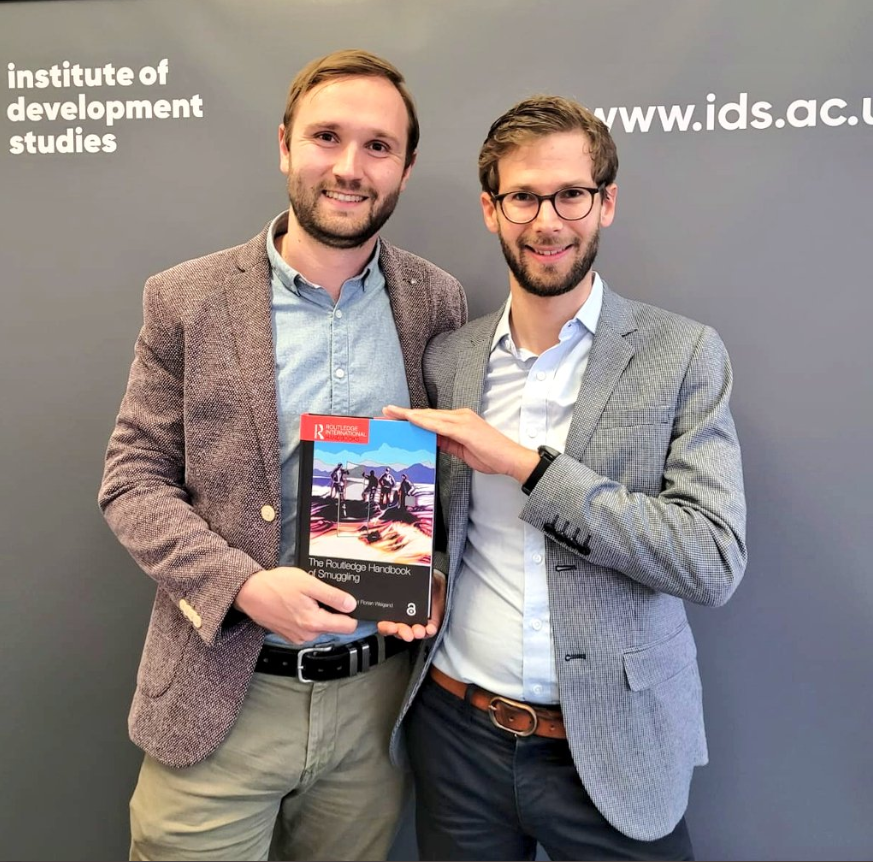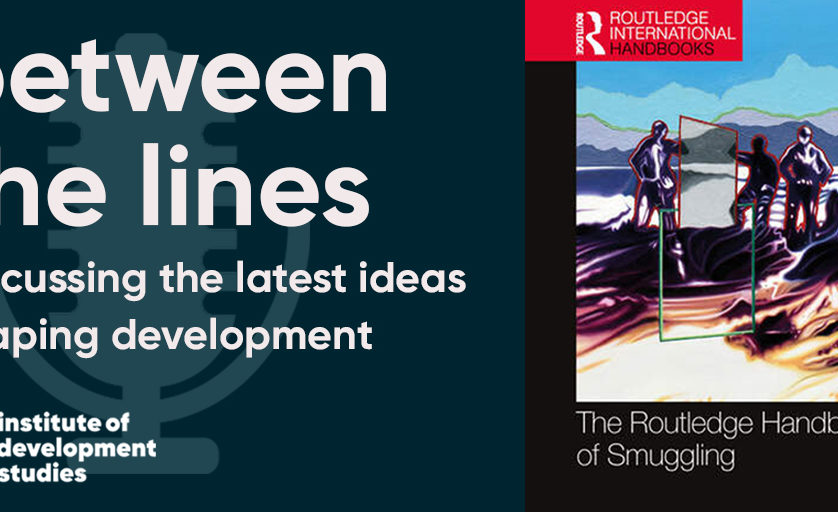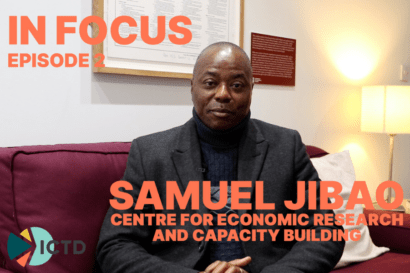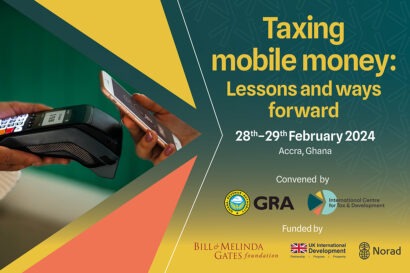In this episode of the Institute of Development Studies (IDS) podcast Between the Lines, BBC journalist Sana Safi interviews Max Gallien, Research Fellow at IDS and Florian Weigand, co-director at the Centre for the Study of Armed Groups at ODI and research associate at LSE about their book: The Routledge Handbook of Smuggling.
Listen now
In the podcast, Sana asks the following, amongst other questions:
- What surprised you while writing this book?
- As this book covers a lot of different disciplines, what did you miss out?
- How can knowledge in this book be used to shape development thinking?
About the book
The book – which has just been made open access – offers a comprehensive survey of interdisciplinary research related to smuggling, reflecting on key themes, and charting current and future trends.
Divided into six parts and spanning over 30 chapters, the volume covers themes such as mobility, borders, violent conflict, and state politics, as well as looks at the smuggling of specific goods – from rice and gasoline to wildlife, weapons, and cocaine. Chapters engage with some of the most contentious academic and policy debates of the twenty-first century, including the historical creation of borders, re-bordering, the criminalisation of migration, and the politics of selective toleration of smuggling.
As it maps a field that contains unique methodological, ethical, and risk-related challenges, the book takes stock not only of the state of our shared knowledge, but also reflects on how this has been produced, pointing to blind spots and providing an informed vision of the future of the field. Bringing together established and emerging scholars from around the world, The Routledge Handbook of Smuggling is an indispensable resource for students and researchers of conflict studies, borderland studies, criminology, political science, global development, anthropology, sociology, and geography.
About the authors

Max Gallien is a political scientist specialising in the politics of informal and illegal economies, the political economy of development and the modern politics of the Middle East and North Africa.
Florian Weigand is a Research Associate and Co-Director of the Centre for the Study of Armed Groups at ODI. He works on political violence, smuggling, governance, international interventions and peacebuilding. He is particularly interested in the perspectives of non-state actors and marginalised groups, including insurgents, rebels, resistance movements, criminal groups, victims of violent conflict and civil society activists. He is also an ESRC Postdoctoral Fellow in the Department of International Development at the London School of Economics and Political Science.
About the interviewer
Sana Safi is a BBC Journalist and involves her presenting, producing and reporting on Afghan, Pashtun, South-Central Asian and international stories for television, radio, online and digital in three languages: Pashto, Dari-Farsi/Persian and English.
The multi-platform nature of her work has guided Sana to be actively involved and follow developments across several fields, including mass media, government, policy, global politics, health, science and technology.
With thanks to:
- The ‘Between the Lines‘ podcast is recorded, edited and narrated by Gary Edwards, Institute of Development Studies
- Music credit: Crypt of Insomnia/One Day in Africa (instrumental version)/Getty Images



